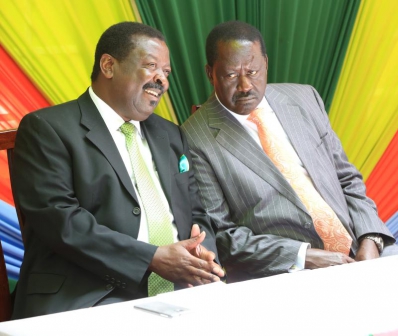×
The Standard e-Paper
Stay Informed, Even Offline

NASA co-principals Musalia Mudavadi and Raila Odinga during the signing of power sharing deal that will see them forge a common front against Jubilee Party. [Photo: Beverlyne Musili/ Standard]
A National Super Alliance (NASA) committee has identified 14 counties where candidates for gubernatorial and other elective seats will be picked either through consensus or joint party primaries.